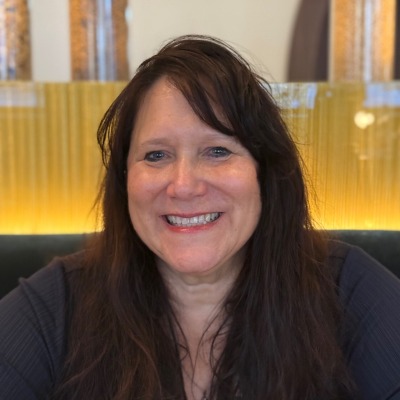Zoë Kessler, Assistant Professor in the School of Social Work took to the road with her family, not knowing where it would lead, and gained a new daughter, a PhD, and a rewarding travel and research agenda.
Nearly a dozen years ago, Kessler and her husband worked as clinical social workers, raising their children. They volunteered to host a ten-year-old girl from a Latvian orphanage for the winter holidays. Kessler recalls that we knew nothing about her circumstances. Besides being a post-Soviet bloc country, I didn’t know much about Latvia. We didn't hear very great stories about her life there.” After their holiday guest went home, Kessler said, “I had trouble sleeping because I kept thinking about her.” Kessler and her husband decided that she would visit the orphanage with her oldest daughter during the next school vacation.
“We spent all day with the kids…We did all sorts of fun things and walked around the city. During the visit, Kessler asked the social workers about the prospects for these children. She learned that “their chances weren't very good. The stigma was high for kids who had grown up in care.”
When she got home, Kessler said, “My husband and I started the adoption process because we thought we already had this child in our home, and we fell in love.” As the adoption proceeded, the Kesslers brought her back to the U.S. for a summer. It was hard to send her back again, but the family returned to visit Latvia the following January, and the family lived in Latvia, establishing the residency required to adopt.
Pursuing Research
In her attempt to understand more about the outcomes for children in care, Kessler started a literature search on children in care from post-Soviet bloc countries. The literature available was minimal, so she decided to pursue her PhD in Social Work and research the experiences of these children. A few years later, along with her adopted daughter, she returned to Latvia to conduct her qualitative doctoral research. “I found that a lot of resilience isn’t accounted for…These kids have all been through a lot before they get there.”
She is an alumnus of Salem State University’s Master of Social Work program. She is now an assistant professor in the School of Social Work, teaching graduate and undergraduate courses. In 2023, she returned to Latvia as a Fulbright Research Scholar. Fulbright is one of the most prestigious scholarships in the United States and is distinguished among cultural exchange initiatives.
“I've had wonderful opportunities to present my research in Latvia.” Social Work is still developing in Latvia, it’s a relatively new profession there.” She’s found students eager and excited to deepen their knowledge and expand their skills in working with clients dealing with trauma, addictions, and other issues.
The impact of Kessler’s research was soon evident. Latvian graduate students are interviewing this population more. Kessler emphasized,” I think that can't be done enough... stakeholders are very important, but some of the most important stakeholders are the ones who have lived experience.”
Faculty-led Travel
Kessler has taught two Social Work Electives teaching International Social Work focusing on Latvian Child Social Welfare, including a faculty-led trip over Spring Break to Latvia. Students spent the week with European Social Work students, on-sight visits to various social welfare agencies, and participated in lectures at Riga Stradens University.
Latvia didn’t become independent until 1984. Its history, Kessler explained, is essential to understanding the poverty and the issues that led to such high numbers of children ending up in care homes. “The Nazis, the Russians; both of them have occupied Latvia…all of that context is critical to understanding the current context.”
This dark past violently re-emerged during Kessler’s experiences in Latvia. Russia annexed Crimea from Ukraine when she first visited Latvia, before the adoption. Later, during her Fulbright in Latvia, Russia invaded Ukraine. “There's support for Ukraine all over Latvia, and thousands of Ukrainians are finding safety in Latvia.
Kessler described an eerie graphic of Russian President Putin hanging outside the Ukrainian embassy, which directly faces the Russian embassy in Latvia. “The top half of Putin’s face is his own and from there down, he’s a skeleton,” said Kessler. Russians looking outside their embassy can’t avoid seeing the graphic protest. Nearby, the Ukrainians placed a blown-up Russian tank, covered in Ukrainian flags.
These experiences have only deepened Kessler’s belief in the power of hope. When she works with Salem State students, she says, “I never want them to feel, ‘I could never do that, or I won't be able to do a masters, or I wouldn't be able to get a PhD or teach.’ Don't let anybody limit you. I hope they all... become who they want, who they hope, and dream to become.”

